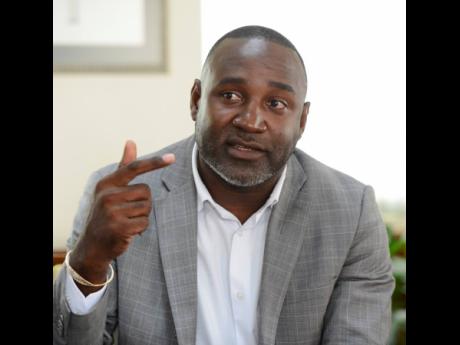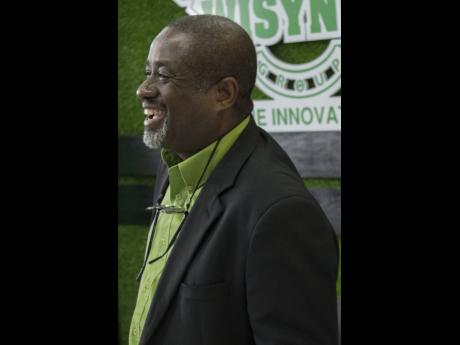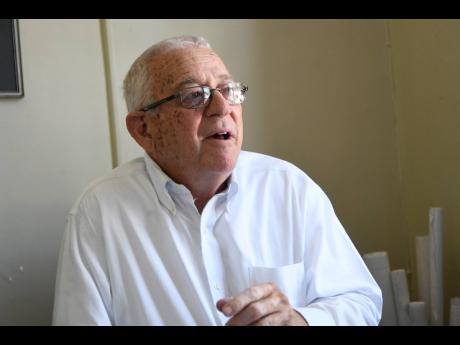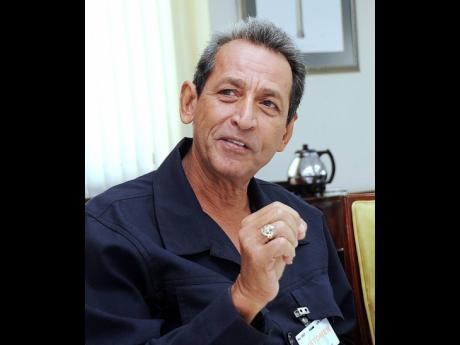Gangs, guns, garrisons - Unhealthy political legacies linger 40 years after 1980 election
While the ideological divide and gut-wrenching political violence which dominated the campaign for the 1980 general election have been largely put to rest, there is consensus that unhealthy legacies still linger four decades later.
Among them are social and economic inequities, which are made poignant by the COVID-19 pandemic: crime and violence continues mainly through the availability of guns via gangs; worrying illiteracy levels remain; and the country has still not got a grip on a housing crisis. These were some of the issues highlighted by political and church leaders who reflected on the dark days of the 1980s and the road travelled 40 years on with The Sunday Gleaner last week.
The Reverend Karl Johnson, general secretary of the Jamaica Baptist Union (JBU), last week pointed to the cyclical electoral wipeout by the Jamaica Labour Party (JLP) of the People’s National Party (PNP) in the 1980 and 2020 general elections.
In 1980, the then opposition JLP offered itself as the antidote to socialism and all its ills, but Johnson believes the political fervour which led to the landslide 51-9 defeat of the PNP has died. While there was much to celebrate, he said, the period still leaves a bitter aftertaste.
The issue of land reform is a sticking point for Johnson, who said landlessness has been handed down to generations.
“So we celebrate institutions like the National Housing Trust (NHT) and the Housing Agency of Jamaica and the attempts to provide housing, but the journey still has such a far way to go. And both major political parties have espoused the issue in their respective manifestos over the years, but I don’t think as a country, we could honestly say the journey has even begun properly,” he told The Sunday Gleaner.
Johnson’s Baptist Church, as well as the Moravians, Methodists, Catholics and Anglicans, have lost nearly 10,000 acres to squatting, with the Moravians heaviest hit, losing more than 4,000 acres.
In 2018, Johnson told The Sunday Gleaner that the Baptist Church lost lands in every parish but the number of acreage was still unknown “because it would plunge the body into depression”.
The church, he said, was trying to balance the existing situation with the need for housing.
“We need to stay the course, fixity of purpose. We need to depoliticise land reform, health, education. There are some things that should never become political football,” he said.
The JBU general secretary said that the COVID-19 pandemic has also unmasked several inequities in the society, and that the country’s ability to hold mature discussions was still stymied by immaturity 40 years on.
“We have long massacred the notion of a shared common humanity. The widening gaps between the Jamaicas have also been exposed, and it was the 1980s that brought the political landslide era,” Johnson said.
Political role in squatter crisis
Retired politician the Reverend Ronald Thwaites is also bemoaning lost opportunities to move the country forward.
“One of the enduring legacies in the endemic tribalism that instead of us learning about the bloodshed in 1980, we still maintain that vulnerability, risk and disrespect for each other. What it does is to prevent the Government from achieving its five in four (economic growth). The tribalism is going to colt any real hope of economic growth and social recess,” Thwaites told The Sunday Gleaner.
On the issue of landlessness, he said that squatting has been paid scant regard.
“What I do know is that there is a tendency where you have strong support and another person needs shore up, you move people to shore up,” he said of political influences in relocating persons to gain advantage at the polls. “It is a grave temptation because if the other side does not do it, you lose.”
Recounting the 2001 St Ann North Eastern by-election, which ushered Shahine Robinson into politics, Thwaites said, “So many people came from outside to squat in communities to shore up what was her effort to win, and it worked.”
Thwaites said among the PNP the discussion was that whatever suited the goose suited the gander.
“It’s part of an unfortunate rot that afflicts the culture and requires maturity to change. One has to decide and then act to move some simply because they are in the way of disaster, but where necessary, you upgrade people where they are,” he posited.
Among the land reform efforts of the 1970s and 1980s was multi-year leases with the possibility of ownership. Operation Pride in the 1990s and the Land Administration and Management Programme (LAMP) were later aimed at creating more structured communities and provide titles for properties.
It is estimated that between 750,000 and one million Jamaicans are squatters.
“Moving individuals breaks up communities. The plans for Allman Town is one such and they destroy communities permanently, and when new housing is done, the very same individuals you move are unable to buy the houses,” Thwaites said in reference to plans to establish a government campus at Heroes Circle and redevelop the surrounding areas in his former Kingston Central constituency.
The Roman Catholic deacon recalled the political activism of the Church leading up to the 1980 election. Today, he said, many have fallen asleep.
“I think the Church has gone into retreat. Some of them were directly induced and aided to ensure that they would not follow the left-wing radical Jesus. The unresolved denominationalism is still keeping people apart and still preventing the kind of witness [needed], and people keep on looking over their shoulders,” Thwaites said.
The Church’s influence in education has also waned, he opined, with many “not as forthright as they once were with the governments of the day”.
His harshest criticism was for academia, which he labelled a “set of eunuchs”, charging that the custodians of critical thoughts of the period have not served the population well. He believes that the late political pollster Dr Carl Stone’s work on political thought was seminal and more credible because he was not ideological but formed opinion based on empirical data.
Do-or-die election created elephants in the room
Michael Williams is chairman of the National Democratic Movement, the only third party to secure almost 5,000 votes in a general election in Jamaica.
Williams said that in 1980, he was a serious political activist for the JLP who was “prepared to flee if the JLP had lost the election”.
“The September 3 win was certainly not as dramatic, not unexpected and with no violence. The stakes were not as high because of the ideology. It was ideology that brought the passion to the campaign,” he said, comparing the 1980 and 2020 polls.
“Had the JLP lost the 1980 election, I couldn’t stay here. I was one of the main players in the gas demonstrations of 1978, which shut the country down,” he said last week.
Political violence between 1976 and 1980 unleashed bloodshed not seen since in any election campaign, which resulted in the mass movement of individuals from several constituencies as many fled arson and bullets. More than 800 lives were lost during the period.
“We totally bought into the fearmongering caused by the ideology of the time – that is communism versus capitalism,” Williams reflected. “As a young man in my 30s, I said this was a do-or-die election. That was my thinking, but that legacy has morphed into the ripe old gangs, guns and garrisons, which are the biggest elephants in the room of the 1980s legacy. Now, there is no difference between both parties, hence my coining them as JLPNP.”
Efforts to ramp up literacy levels among the adult population and at the early childhood level have been disappointing, as a significant number of students leave high schools unable to read or reason, Williams said.
The creation of an electoral system that is world-class was among the best efforts to clean up the period and prevent the hijacking of the country’s democracy, he added, a point supported by former St Ann North Western member of parliament, Dr Dayton Campbell.
“We still have garrison constituencies even though we have come a far way, even though persons are free to express their choices,” Campbell told The Sunday Gleaner, adding that as the country moves further towards electronic voting, there will be greater confidence in the process.
He acknowledged that there was need for squatting to be addressed.
“I have always found it concerning when persons start squatting on a piece of land, especially when it is politically motivated, because it is not accompanied by the development that is required. The development comes after occupation. That leads to further cost to the taxpayers. We, therefore, have to look at solving the issue of housing,” said Campbell, who lamented that housing costs were out of the reach of the poor.
“If you are really poor, you still have to contribute [to the NHT], but you will never benefit. I think the policy needs re-examination,” Campbell said.




